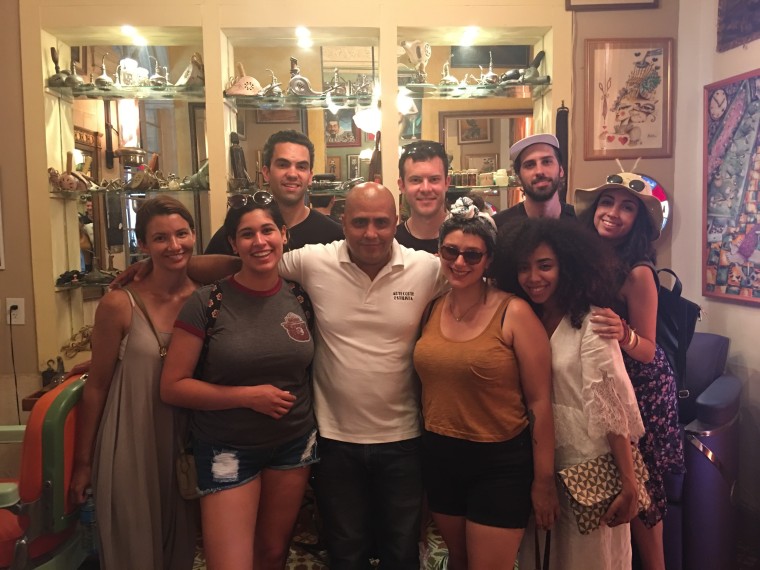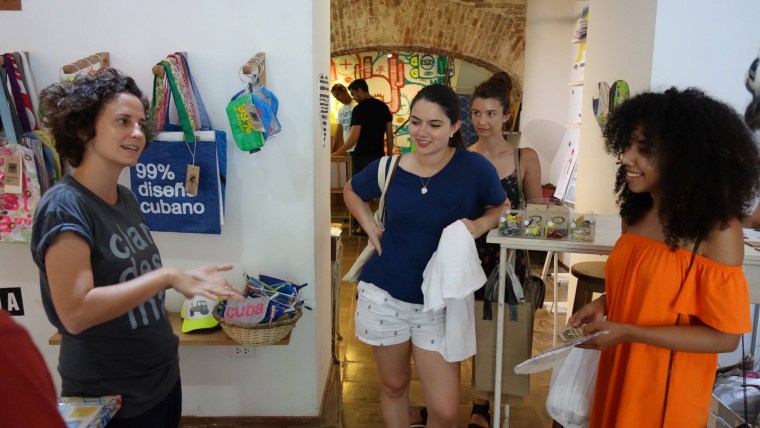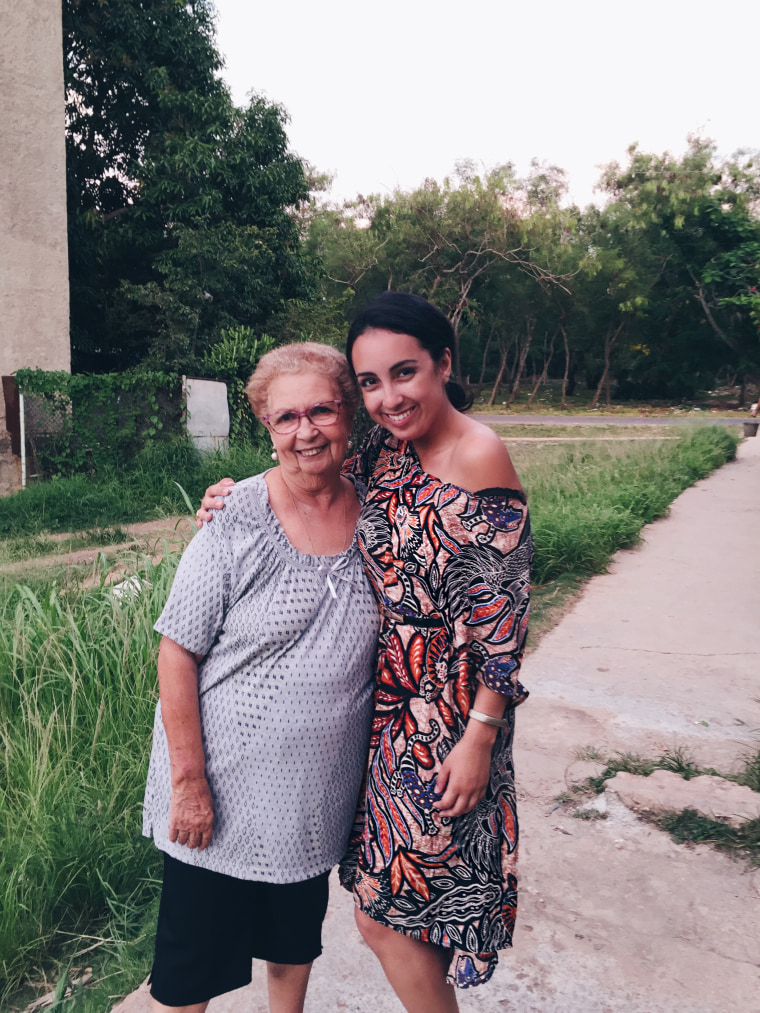MIAMI — Lissette Calveiro, 23, a half Cuban, half Ecuadorian publicist had never visited the island that her father left behind in his early 20s.
Growing up in Miami, Calveiro lived vicariously through her many friends whose Cuban abuelas had hearty meals prepped and ready for visitors.
But recently, she was able to meet her parental grandmother for the first time, sharing photos, conversation, and yes, even food with her own abuela.
“The first thing she did when she saw me, she said ‘You’re too skinny,’” said Calveiro. “She fed me four cups of mango juice in one day!”
Calveiro was able to finally meet her grandmother through a program offering young Cuban Americans the opportunity to explore their heritage and build relationships with people and relatives in the island.
She was one of 9 American millennials who recently got a chance to visit the island of their families' heritage through CubaOne Foundation’s Tu Cuba program. Modeled after Birthright Israel, a program that has sent 500,000 young Jews to Israel since 1999, the foundation strives to keep the Cuban culture alive with one goal: to introduce a new generation to Cuba.

For the young Miami professional, meeting her father's mother for the first time was one of those once-in-a-lifetime moments.
“When I actually met her, I had no words,” said Calveiro.
Co-founder and spokesperson Giancarlo Sopo, 33, says the organization is rooted in personal stories. The son of a veteran of the Bay of Pigs invasion, Sopo is all too familiar with the fascination and mystery surrounding Cuba.
“Everyone always talks about Cuba, but they’ve never been there,” said Sopo. The four founders, who have put nearly $100,000 of their own money to fund the trips, believe that Cuba should be more than just black-and-white photos for this and future generations.
Over 1,000 applicants between the ages of 20 and 35 from around the country applied for the inaugural 7-day trip, in fields ranging from journalism to entrepreneurship.
While visiting the island, each trip creates opportunities for participants to engage with Cuban professionals in similar industries. From restaurant owners, to graphic designers, the relationships are just beginning to flourish.
While the itinerary is focused on a wide array of visits to historic sites, its focus is building opportunities for people-to-people engagement. Each trip is different, customized to the interests of the participants.

In the case of the inaugural trip, the class’ interests included art, tech, entrepreneurship, farming and Afro-Cuban culture and religion. Some days included tours of neighborhoods that are off the beaten path, like Regla, a city in Havana. Other days included a visit to a privately-owned contemporary dance studio.
Future trips are already in the works, one for next year slated to be LGBT focused.
“I was honestly surprised by the conversations and the openness that people had in talking to us,” said Calveiro. “There was one person who told me, yeah you know food is hard to get but if my neighbor didn’t have food for the week, I would cut mine in half and give it to him.”

The founders have also made sure to include time for participants to visit any family members they may still have residing on the island, the way Calveiro did.
“It just all hit me that there’s this complete different part of my culture and my roots that I had never connected with and she was one of those missing pieces,” said Calveiro about connecting with her grandmother.
The young Miami resident was surprised to see the emphasis placed on Cuban arts in the communities they toured, quickly realizing the many similarities she shared with a country she might have never come to know.
She said the program succeeded in making the trip authentic by meeting people in their prospective industries and communities.
“I really felt like I was in their culture,” said Calveiro. “My culture.”